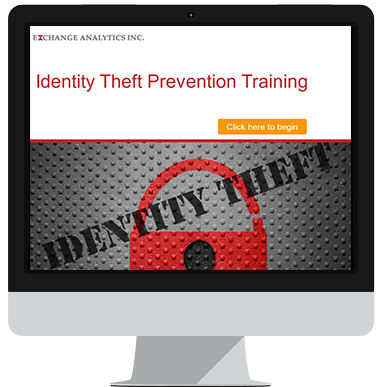This training course is a highly recommended complement to cybersecurity training that is required annually for appropriate employees of the NFA-member entities listed below.
Identity Theft Prevention Training

CFTC/NFA Identity Theft Training Requirement Background
This course goes beyond our cybersecurity training course to identify specific identity theft threats, detection methods and appropriate responses.
Appropriate employees of these NFA-member entities are recommended to take Identity Theft Prevention training:
- Futures Commission Merchants (FCMs)
- Independent and Guaranteed Introducing Brokers (IBs)
- Commodity Trading Advisors (CTAs)
- Commodity Pool Operators (CPOs)
- Retail Foreign Exchange Dealers (RFEDs)
- Swap Dealers (SDs)
- Major Swap Participants (MSPs)


Identity Theft Prevention Training Course
COURSE TYPE: Identity Theft Prevention Training
LENGTH OF COURSE: Approximately 35-45 minutes; you may save your progress and return to the program as often as needed.
PRICE: Call or email for pricing; corporate volume discounts available.
FREQUENCY: Annually
COURSE OUTLINE: Download PDF
WHAT'S INCLUDED: Interactive course delivered via secure LMS platform; course completion confirmation to trainee and firm; electronic record archiving; on-demand record retrieval.
Identity Theft Prevention Training Requirements
The USA PATRIOT Act of 2001 requires NFA-member Futures Commission Merchants and Introducing Brokers, and FINRA Broker/Dealer firms to have anti-money laundering compliance programs in place. Under the Treasury Department’s Bank Secrecy Act, FinCEN requires RMLOs to have AML programs in place. At a minimum, covered firms must:
Identity Theft Prevention Requirements
SEC Regulation S-ID along with CFTC Subpart C, enacted in 2013, require entities that qualify as either “financial institutions” or “creditors” to adopt programs to identity and address the risk of identity theft. Covered entities include SEC-regulated broker-dealers, investment advisers and certain investment companies; and CFTC-regulated entities that hold transaction accounts including futures commission merchants, retail foreign exchange dealers, commodity trading advisors, commodity pool operators, introducing brokers, swap dealers or major swap participants. Each financial institution or creditor that offers or maintains transaction accounts must develop and implement a written program designed to detect, prevent, and mitigate identity theft in connection with the opening of a covered account or any existing covered account.
Elements of an Identity Theft Prevention (Red Flag Rule) program
Covered entities are required to develop an Identity Theft Prevention Program that, at a minimum, include the following elements:
• Identification of relevant “red flags” that may indicate the potential of identity theft;
• Methods for detection of the relevant red flags;
• Appropriate responses to detected red flags; and
• Periodic review of the program (including updates of relevant red flags) to reflect changes in risks to customers and to the safety and soundness of the financial institution or creditor from identity theft.













